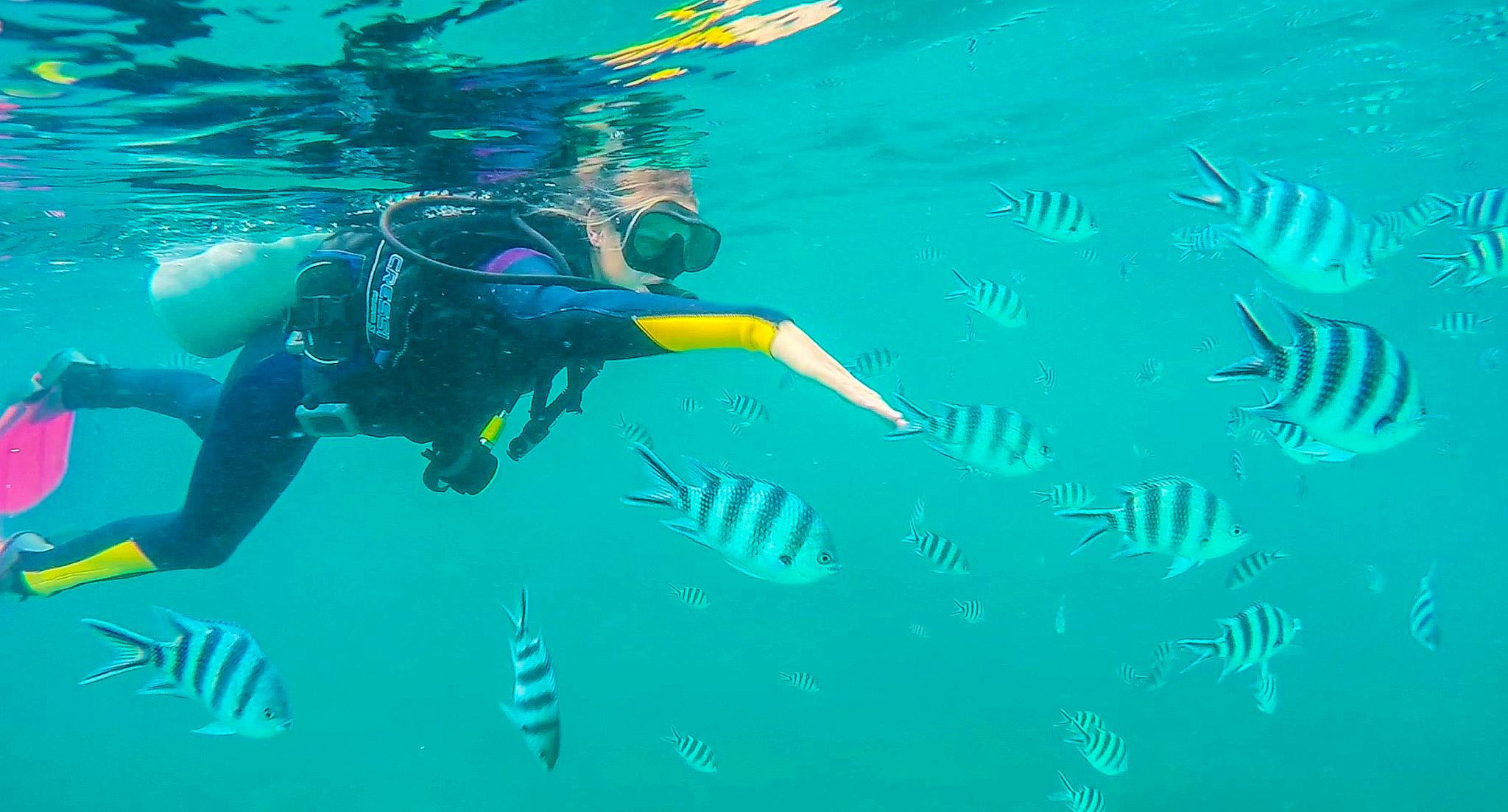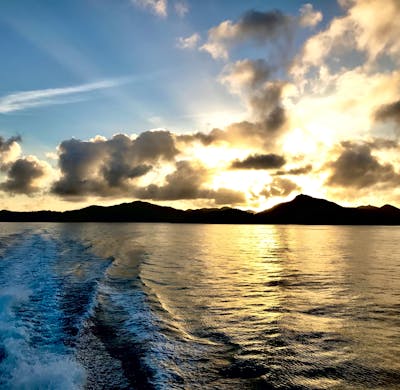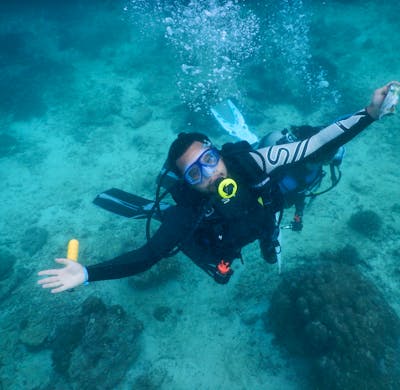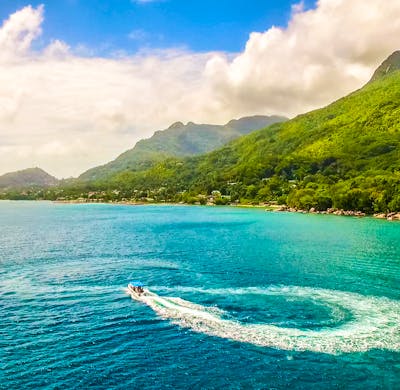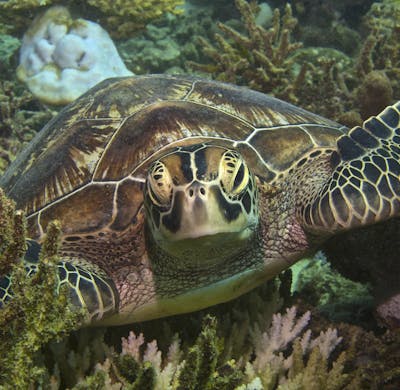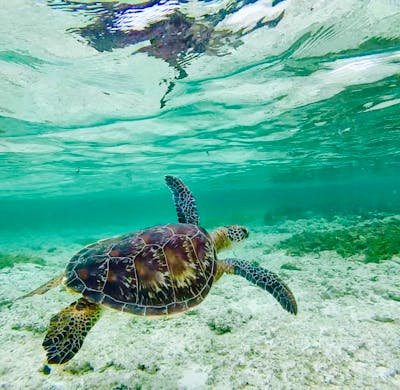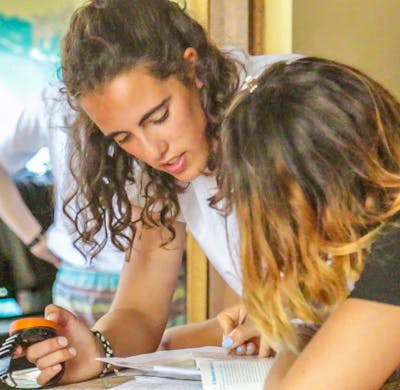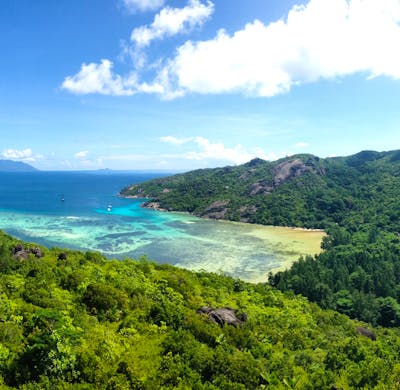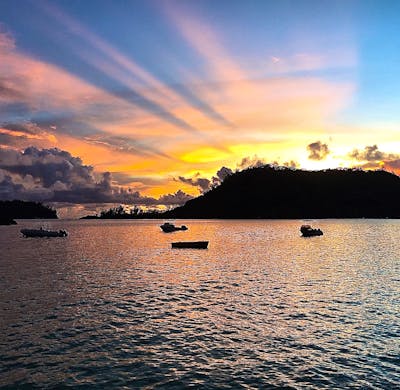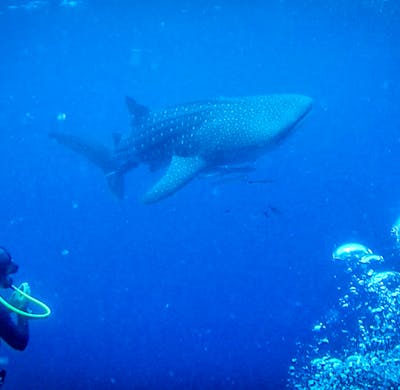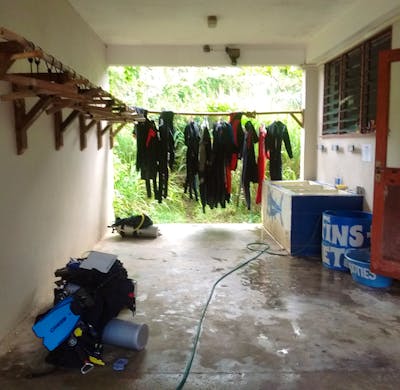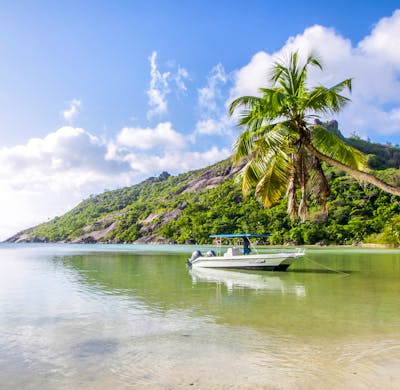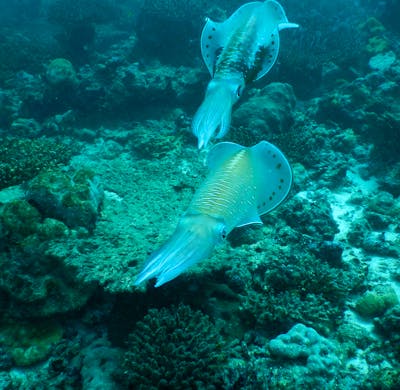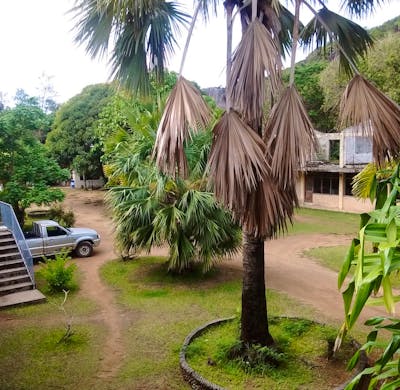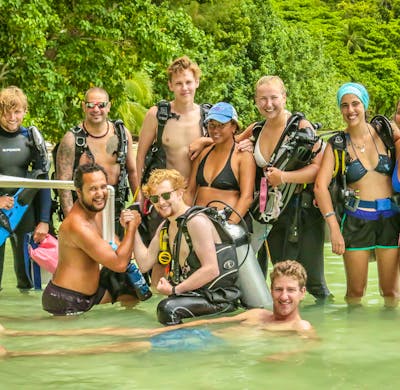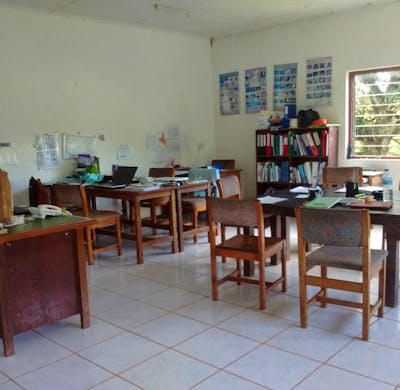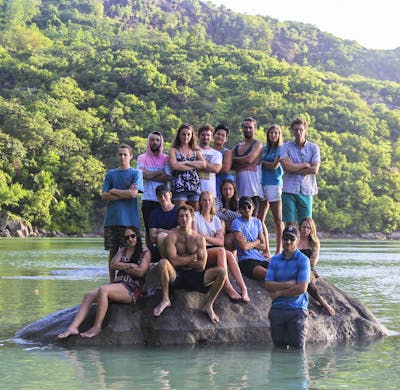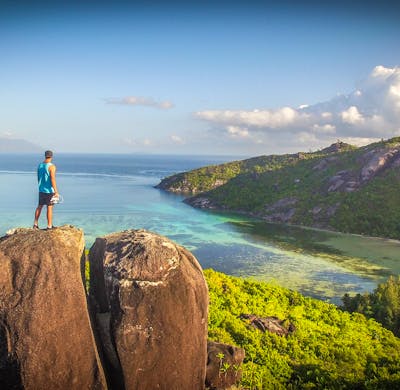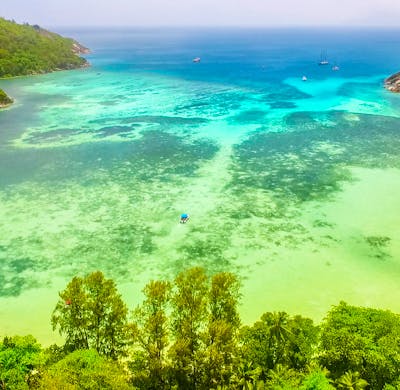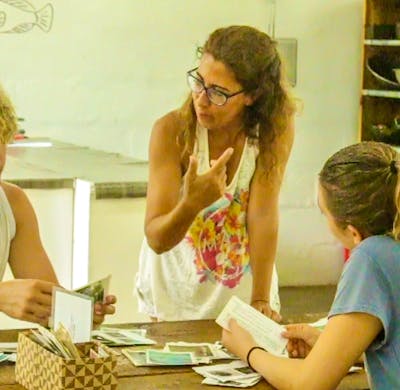from 4,345€
Marine Conservation and PADI Training Expedition
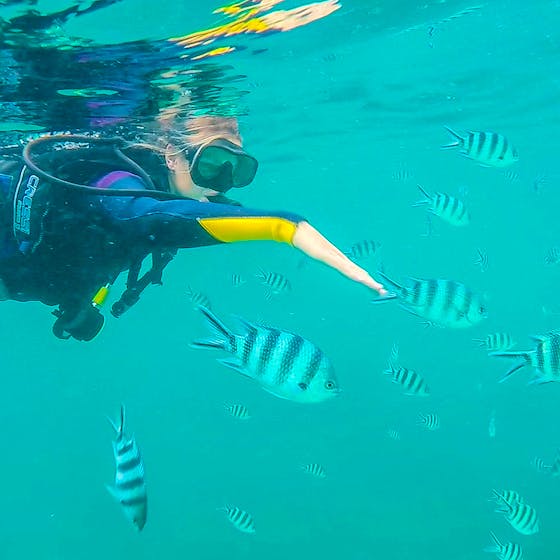
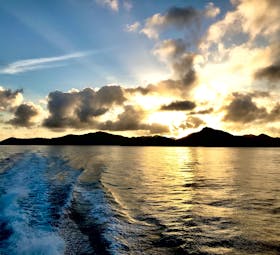
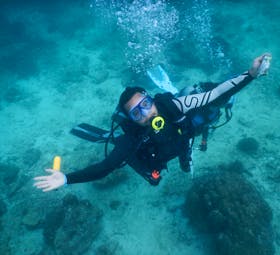
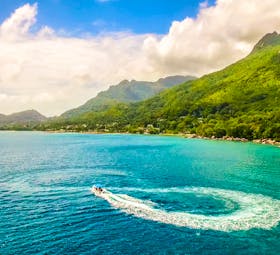
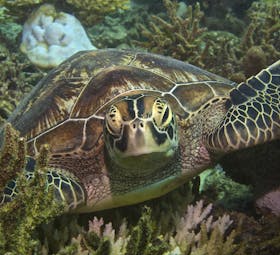
Highlights
- Explore dive sites among the tropical islands of Seychelles and experience incredible local marine megafauna like turtles, sharks, rays and dolphins.
- Contribute to ongoing environmental projects that address critical challenges aligned to the United Nations Sustainable Development Goals.
- Help monitor coral reefs, assess bleaching, coral growth, and engage in invertebrate, fish, seagrass, shark and megafauna surveys.
- Join local conservation partners and qualified professionals to ensure your efforts are ethical, meaningful and sustainable.
- Identify species and conduct surveys that contribute to data collection efforts and help build an inventory of marine species in Seychelles.
Especially suitable
About the program
Gain your PADI Advanced dive certification and work alongside esteemed partners such as the Seychelles National Parks Authority on critical marine conservation efforts.
Earn your PADI Advanced Open Water and PADI Reef Ecosystem Diver (RESD) Specialty certifications while making a real impact on marine conservation. Your research will provide valuable data for local government initiatives, focusing on coral reefs, fish and invertebrates.
With plenty of time spent ...
Typical day
Free-time activities
Takamaka rum distillery: Check out the rum distillery at Pointe Au Sel for a taste of local flavours. Nearby, you can also visit a tea plantation and a village showcasing local crafts.
- Victoria City: Dive into the diverse culture of Seychelles in Victoria, ...
Requirements
What's Included
What's NOT included?
Details on arrival
2024
- 27 Apr 2024
- 11 May 2024
- 25 May 2024
- 08 Jun 2024
- 22 Jun 2024
- 06 Jul 2024
- 20 Jul 2024
- 03 Aug 2024
- 17 Aug 2024
- 31 Aug 2024
- 14 Sep 2024
- 28 Sep 2024
- 12 Oct 2024
- 26 Oct 2024
- 09 Nov 2024
- 23 Nov 2024
- 07 Dec 2024
- 04 Jan 2025
- 18 Jan 2025
- 01 Feb 2025
- 15 Feb 2025
- 01 Mar 2025
- 15 Mar 2025
- 29 Mar 2025
- 12 Apr 2025
- 26 Apr 2025
- 10 May 2025
- 24 May 2025
- 07 Jun 2025
- 21 Jun 2025
- 05 Jul 2025
- 19 Jul 2025
- 02 Aug 2025
- 16 Aug 2025
- 30 Aug 2025
- 13 Sep 2025
- 27 Sep 2025
- 11 Oct 2025
- 25 Oct 2025
- 08 Nov 2025
- 22 Nov 2025
- 06 Dec 2025
- 21 Dec 2025
Program fees
Meet your organization
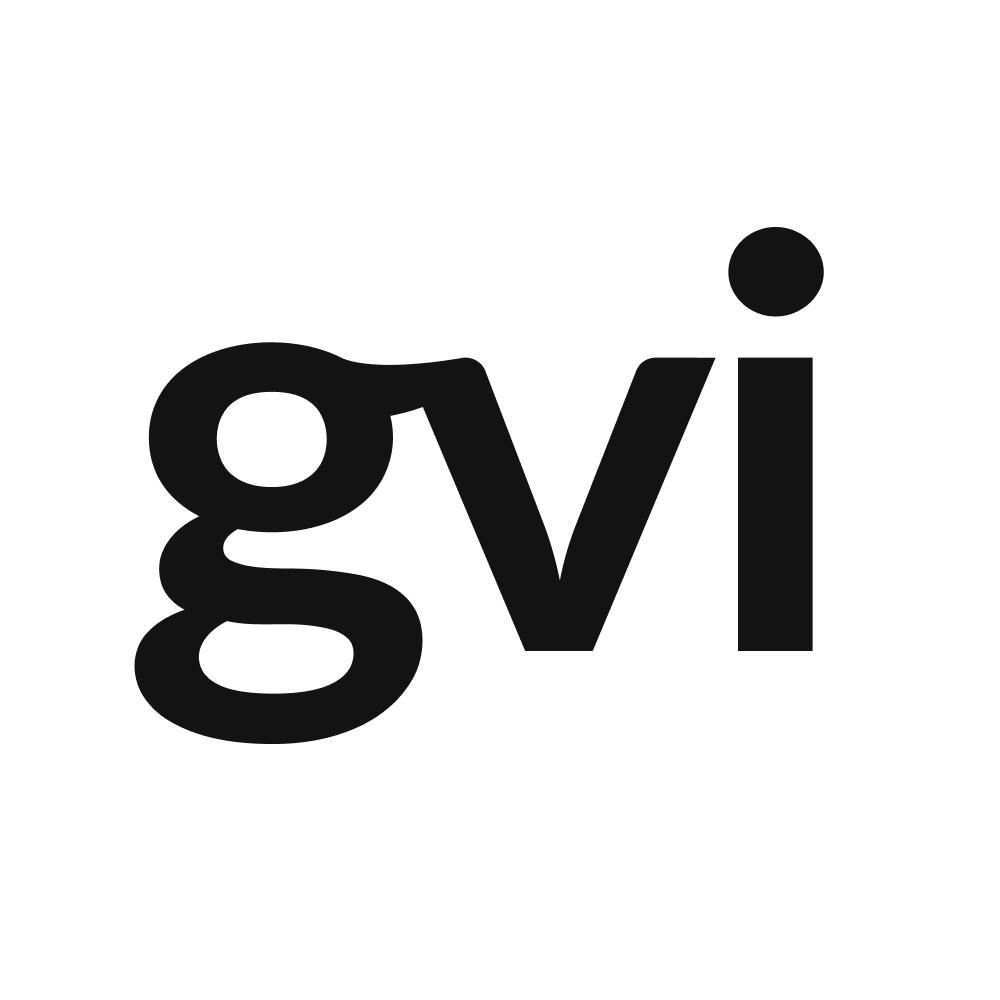
GVI
Agency - founded in 1998
Verified by Volunteer World
Coordinated by

Bianca
About the project
199 reviews ·  4.7
4.7
Location

You might also be interested in
-
Coral Reef Conservation
Diving
Diving certificate
Manta Ray
Ocean Cleaning
Plastic Reduction
Premium
Whitetip Reef Shark
Dolphin Conservation
Ray Conservation
Shark Conservation
Waste Reduction
50 Plus Volunteering
Volunteer Trips for College Students
Nature Volunteering
Global Volunteer Opportunities
Couples
Mission Trips to Africa
Voluntouring
Whale and Dolphin
Marine Big 5
Adults
Projects Abroad
Mission Trips
Best Volunteer Programs
